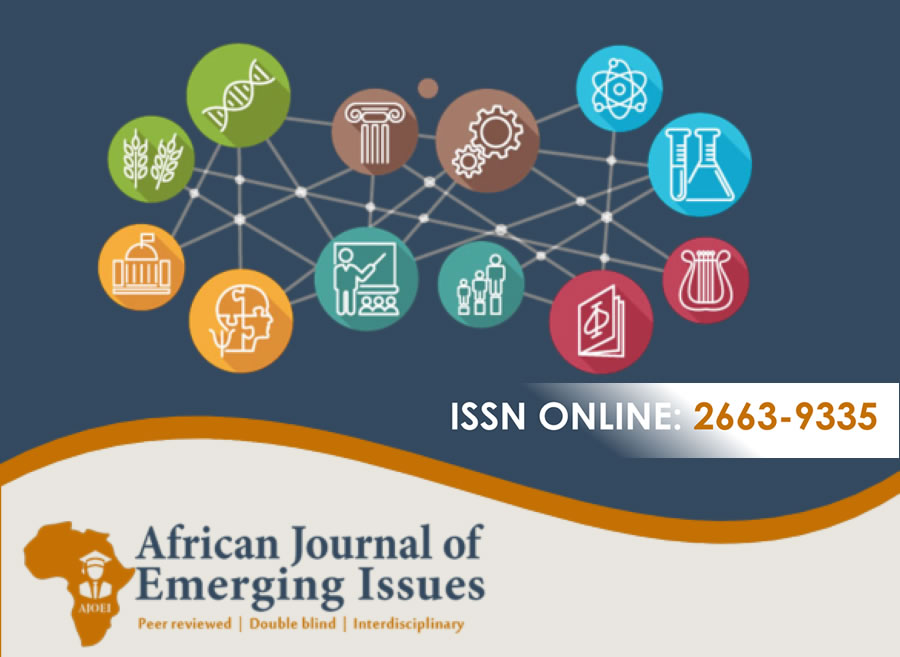LOCAL COMMUNITY INTERPRETATION OF HERITAGE AND ITS INFLUENCE ON SUSTAINABILITY OF COMMUNITY-BASED HERITAGE TOURISM IN MOUNT KENYA REGION, KENYA
Abstract
Purpose of the Study: The purpose of this study was to determine the local community interpretation of heritage and its influence on sustainability of community-based heritage tourism in Mount Kenya Region, Kenya.
Research Methodology: A pragmatic research philosophy and an ex-post facto research design were adopted for this study. The target population for the study was 3,527,669 residents around Mount Kenya National Park. A sample of 384 residents was selected and questionnaires were distributed. Data were collected using questionnaires and interview guides. Both inferential and descriptive statistical analyses were conducted, including regression and correlation analyses.
Findings: The study found that 84% of respondents demonstrated knowledge of community-based tourism, while 58.7% valued Mount Kenya as heritage that should be protected. Community forums existed in 54% of the areas surveyed, and 47% reported presence of community-based organizations. The study established that local interpretation directly influences heritage sustainability through community understanding and appreciation of heritage resources.
Conclusion: The study concluded that local community interpretation substantially affects heritage tourism sustainability in Mount Kenya region. Communities with better heritage understanding demonstrate stronger conservation behaviours and more effective tourism practices. Consequently, the study recommends strengthening community interpretation programs to enhance sustainable heritage tourism.
Recommendation: The study recommends that communities in Mount Kenya region should strengthen heritage interpretation capabilities through education programs, community forums, and organizational support. Future research in other heritage sites in Kenya is suggested to facilitate the comparability of findings.
Keywords: Heritage Interpretation, Community-Based Tourism, Cultural Knowledge, Sustainable Tourism, Mount Kenya
References
Biesen, I. (2016). Experiential learning in heritage interpretation: Emotional engagement and visitor meaning-making. International Journal of Heritage Studies, 22(6), 490–502.
Emerton, L. (2000). The nature of benefits and the benefits of nature: Why wildlife conservation has not economically benefited communities in Africa. African Wildlife Foundation.
Goodwin, H., & Santilli, R. (2009). Community-based tourism: A success? ICRT Occasional Paper 11.
Han-yin Huang. (2011). Heritage, local communities and the safeguarding of 'Spirit of Place' in Taiwan. In P. Davis & H.
Huang (Eds.), Heritage and Identity: Engagement and Demission in the Contemporary World (pp. 123–135). Routledge.
ICOMOS. (2011). ICOMOS Charter for the Interpretation and Presentation of Cultural Heritage Sites. Retrieved from https://www.icomos.org/images/DOCUMENTS/Publications/HR2011-13final.pdf
Jamal, T. (2016). An integrated approach to sustainable community-based tourism. Sustainability, 8(5), 475. https://doi.org/10.3390/su8050475
Orbe, M. P. (1998). Constructing co-cultural theory: An explication of culture, power, and communication. SAGE Publications. https://doi.org/10.4135/9781483345321
Santilli, R. (2009). Community-based tourism: A success? ICRT Occasional Paper 11.
Shalaginova, I. (2012). Understanding heritage: A constructivist approach to heritage interpretation as a mechanism for understanding heritage sites (Doctoral dissertation, Brandenburg University of Technology).
Shalaginova, I. (2012). Understanding heritage: A constructivist approach to heritage interpretation as a mechanism for understanding heritage sites (Doctoral dissertation, Brandenburg University of Technology).
Terzić, A., Jovičić, A., & Simeunović-Bajić, N. (2014). Community role in heritage management and sustainable tourism development: Case study of the Danube region in Serbia. Transylvanian Review of Administrative Sciences, 10(42), 183–200.
Tilden, F. (1957). Interpreting our heritage. University of North Carolina Press.
Uzzell, D. (2015). Creating place identity through heritage interpretation. International Journal of Heritage Studies, 21(1), 1–10.
Woodley, A. (2003). Heritage management and community participation: The case of the World Heritage site of Angkor, Cambodia. In N. Agnew & J. Bridgland (Eds.), Of the Past, for the Future: Integrating Archaeology and Conservation (pp. 82–87). Getty Conservation Institute.





